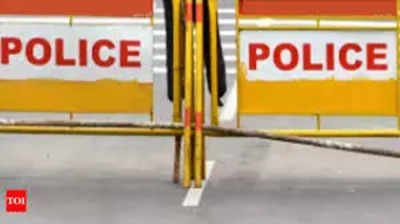- News
- City News
- gurgaon News
- New criminal laws from today, 17k officers trained as Haryana police gets ready for rollout
Trending
New criminal laws from today, 17k officers trained as Haryana police gets ready for rollout

According to a senior officer, 3,200 master trainers were selected from police stations across the state and trained in the new laws by faculty at the Bhondsi Recruit Training Centre and the Haryana Police Academy in Madhuban.

“We have been focusing on the training of our staff for the implementation of new laws. As of now, 17,000 officers working at various levels have received the special training in new laws. All the 13,000 police personnel involved in field investigation roles have undergone the training. The remaining officers will also complete their training in the coming days,” Haryana director general of police (DGP) Shatrujeet Kapur said.
A police spokesperson said BNS and BNSS training classes were held for 10 days each, while sessions on BSA were conducted for five days. After receiving training, the master trainers, in turn, are imparting their knowledge of the new laws to colleagues in their respective police units. “From constabulary to the top-most level officer, almost the entire police commissionerate staff received training in the implementation of new laws,” Gurgaon police spokesperson Sandeep Kumar said.
Police personnel of different ranks whom TOI spoke to all said they were taught about the key differences between the old and the new laws and new key procedures under BNSS and BSA, which are crucial in day-to-day work for investigating officers. Earlier this month, DGP Kapur urged police commissioners, SPs, and deputy commissioners to organise sensitisation programmes and also emphasised the importance of mock investigations.
“Mock investigations have been conducted adhering to the new laws to ensure that we are ready. As of now, we don’t see any problem. Those who make entries of FIRs and supervise the investigations at police stations have been provided with tables of IPC and corresponding BNS sections in tabular form. We will be able to see problems on the ground and practically deal with them only from July 1,” said an SHO from Gurgaon.
As per the new laws, it is mandatory to videograph the seizure of evidence during the investigation, and it is also necessary for a forensic expert to visit the scene of a crime in offences where the punishment is seven years or more. “Forensic teams already visit crime scenes in Gurgaon. Now, it has become mandatory in certain offences. But the videography part is a little tricky. We are not sure whether we have to record the entire procedure of seizure, which sometimes takes a very long time when the size of the inventory is voluminous. For instance, in cases of seizure of illicit liquor, where there will be thousands of bottles, the camera needs to have sufficient memory, battery and bandwidth is also key to upload such voluminous data through the e-Sakshya app proposed by MHA,” said a senior officer.
As of now, police will record videos on their cell phones and furnish the evidence after transferring it into pen drives/SD cards before the court. New equipment is being purchased, cops said.
End of Article
FOLLOW US ON SOCIAL MEDIA










